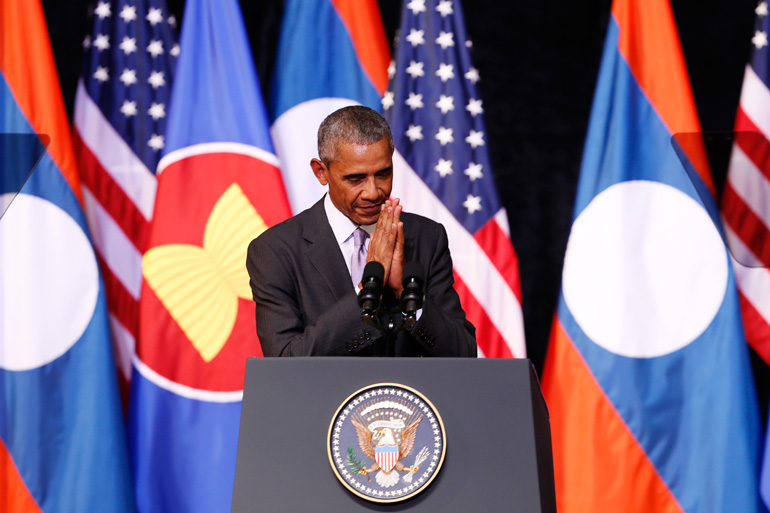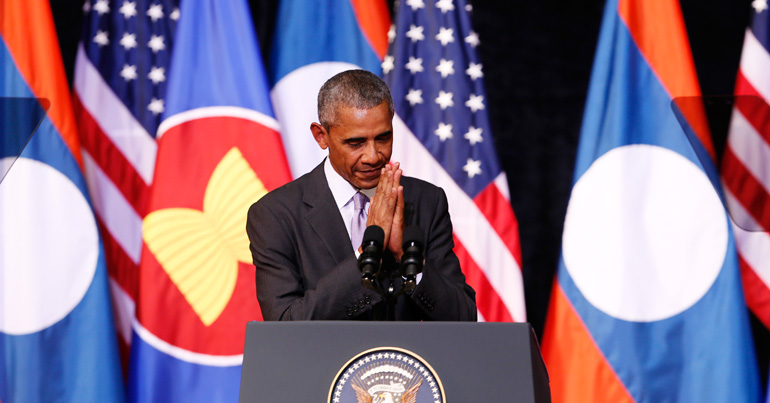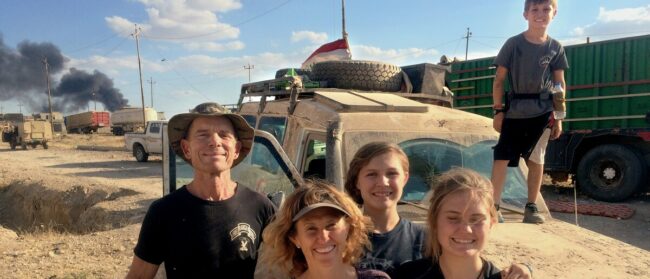As the first sitting president to visit the communist state, Obama is expected to fly the flag for US interests and reassure his regional allies

US President Barack Obama’s presence at both the Asean and East Asia Summits in Laos has sparked hopes that the outgoing statesman – the first sitting US president to visit the communist nation – will reaffirm his commitment to the superpower’s allies across Southeast Asia.
Avery Poole, a political scientist at the University of Melbourne, Australia, suggested that Obama’s presence at the summit offered the US an opportunity to mend ties between the US and Laos more than 40 years after the States’ devastating bombing campaign during the Vietnam War.
“It is certainly significant that Obama will be the first sitting president to visit Laos, and it will be interesting to see how Obama approaches it,” she said. “For example, whether he raises human rights issues or the legacy of the Vietnam War.
Laos was ravaged by approximately 1.8 million tonnes of ordnance dropped on it by the US Air Force between 1964 and 1973, becoming the most heavily bombed country per capita in the world.
Tang Siew Mun, head of the Asean Studies Centre at Singapore’s Institute of Southeast Asian Studies, told Southeast Asia Globe that Obama was well placed to draw attention to controversial subjects within the region.
“On balance, the US plays the important role of raising and discussing issues that are deemed ‘sensitive’ or ‘inconvenient’ for Asean, especially with respect to China,” he said.
Mun described the East Asia Summit as a way for the US to “fly the flag and to reassure its allies and friends in the region of Washington’s long-term and sustained strategic commitment to the region.
“There is no better assurance of US strategic endurance in the region than to have the president being on the ground in Southeast Asia,” he said.
The summit will likely entail discussion of the ongoing dispute over China’s territorial claims on the South China Sea. A close ally of China, Laos is expected to limit criticism aimed at Beijing.
In July, a Permanent Court of Arbitration ruling invalidated China’s claims to the contested territory, though Cambodia – presumed to be under pressure from China – vetoed an Asean statement that acknowledged the verdict. As Asean operates by consensus, Cambodia’s decision means that the ruling will likely not be presented as part of discussions related to the South China Sea.
Obama’s visit got off to a rocky start with the announcement that the president would be cancelling bilateral talks with Philippine President Rodrigo Duterte after the so-called ‘Punisher’ publicly called Obama a “son of a bitch”. Duterte has come under repeated criticism from the White House for his violent campaign against drug-related crime in the Philippines.
Poole warned that Duterte’s flagrant human rights violations threatened to upset the long-held alliance between the US and the Philippines.
“[Duterte’s] hardline stance on terrorism and transnational crimes certainly resonates among US policymakers, but if the human rights situation in the Philippines continues to deteriorate, surely this will become an issue in the US-Philippines relationship, particularly if [Hillary] Clinton becomes president,” she said.
Obama to play key role at Asean summits as part of historic Laos visit
As the first sitting president to visit the communist state, Obama is expected to fly the flag for US interests and reassure his regional allies


